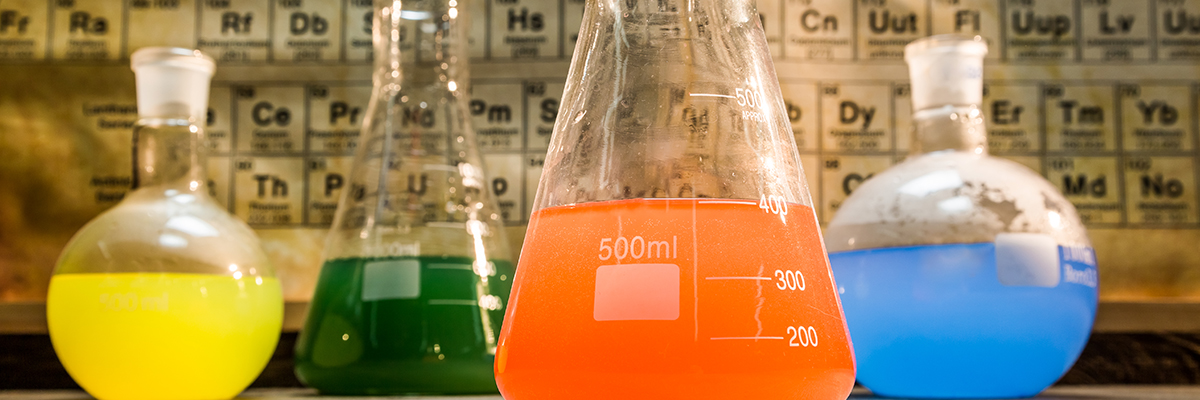The Essential Role of Analytical Chemistry in the Pharmaceutical Industry
Introduction
Analytical chemistry is a vital branch of chemistry that involves the qualitative and quantitative analysis of chemical compounds. In the pharmaceutical industry, analytical chemistry is fundamental to the development, manufacturing, and quality control of drugs. This article explores the basic concepts, techniques, and instruments of analytical chemistry, emphasizing its crucial role in pharmaceutical analytics.
Basic Concepts of Analytical Chemistry
Analytical chemistry focuses on understanding the composition of substances and quantifying their components. The key concepts include:
- Qualitative Analysis: Identifies the chemical components in a sample.
- Quantitative Analysis: Measures the concentration of these components.
- Accuracy and Precision: Ensures the reliability and reproducibility of analytical results.
- Sensitivity and Specificity: Determines the ability of an analytical method to detect and quantify low levels of the target analyte in complex mixtures.
Analytical Chemistry Techniques in the Pharmaceutical Industry
Chromatography
- High-Performance Liquid Chromatography (HPLC): Separates and quantifies components in a mixture based on their interactions with a stationary phase.
- Gas Chromatography (GC): Used for volatile compounds, separating them based on their boiling points and interaction with the column material.
Spectroscopy
- Mass Spectrometry (MS): Identifies compounds based on their mass-to-charge ratio, providing detailed molecular information.
- Nuclear Magnetic Resonance (NMR) Spectroscopy: Offers insights into the structure of organic compounds by analyzing the interaction of nuclear spins with magnetic fields.
- Ultraviolet-Visible (UV-Vis) Spectroscopy: Measures the absorption of UV or visible light by chemical compounds, useful for concentration determination.
Electrochemical Analysis
- Potentiometry: Measures the voltage of electrochemical cells to determine the concentration of ions in solution.
- Cyclic Voltammetry: Analyzes the electrochemical properties of compounds by measuring current changes in response to a varying applied voltage.
Thermal Analysis
- Differential Scanning Calorimetry (DSC): Measures the heat flow associated with phase transitions in materials, useful for studying thermal stability.
- Thermogravimetric Analysis (TGA): Determines changes in the mass of a substance as it is heated, providing data on thermal stability and composition.
Instruments Used in Analytical Chemistry
- HPLC and GC Systems: Essential for chromatographic separation and analysis.
- Mass Spectrometer: Key for identifying and quantifying molecular species.
- NMR Spectrometer: Crucial for structural analysis of organic compounds.
- UV-Vis Spectrophotometer: Widely used for concentration measurements.
- Electrochemical Analyzers: Employed for studying redox properties of compounds.
- Thermal Analyzers (DSC, TGA): Used for investigating material properties and stability.
Examples of Analytical Chemistry in Pharmaceutical Industry
- Drug Purity and Potency Testing: Ensuring that pharmaceutical products meet quality standards by analyzing their composition and concentration.
- Stability Studies: Assessing the stability of drug formulations under various conditions to ensure their efficacy and safety over time.
- Bioanalytical Testing: Measuring drug concentrations in biological matrices, such as blood or urine, to support pharmacokinetic and pharmacodynamic studies.
- Contaminant Detection: Identifying and quantifying impurities and degradation products in drug formulations to ensure patient safety.
The Role of Analytical Chemistry in the CDMO Landscape
Contract Development and Manufacturing Organizations (CDMOs) rely heavily on analytical chemistry to provide comprehensive services, including:
- Analytical Method Development and Validation: Creating and validating robust analytical methods to ensure reliable results throughout the drug development process.
- Regulatory Compliance: Ensuring that analytical methods and results comply with regulatory standards, such as those set by the FDA and EMA.
- Quality Control: Implementing rigorous analytical testing protocols to maintain high standards of quality in pharmaceutical manufacturing.
Aragen’s Expertise in Analytical Chemistry
Aragen Life Sciences offers a comprehensive suite of analytical chemistry services tailored to the pharmaceutical industry. With over two decades of experience, Aragen provides end-to-end solutions from early-stage discovery to commercial production, ensuring the highest standards of quality and compliance.
- Advanced Analytical Chemistry Techniques: Utilizing state-of-the-art instruments such as HPLC, GC, MS, NMR, and UV-Vis spectrophotometers, Aragen delivers precise and reliable results by focusing on the chemical processes involved in drug development.
- Method Development and Validation: Aragen’s scientists develop and validate analytical methods to ensure accuracy and compliance with regulatory standards, supporting the safety and efficacy of pharmaceuticals.
- Comprehensive Quality Control: Aragen implements rigorous quality control measures across all stages of drug development, from raw material testing to final product release, ensuring pharmaceutical products are of the highest quality and free from any impurities.
- Tailored Analytical Solutions: Aragen offers customized analytical services for stability studies, bioanalytical assays, and impurity profiling, addressing specific client needs and ensuring successful drug development.
Conclusion
Analytical chemistry is indispensable in the pharmaceutical industry, providing the tools and techniques needed to ensure the quality, safety, and efficacy of drugs. By understanding and applying the basic concepts, techniques, and instruments of analytical chemistry, pharmaceutical companies and CDMOs can achieve their goals of delivering high-quality products to the market. Aragen Life Sciences, with its extensive expertise and the state-of-the-art facilities, is a trusted partner in analytical chemistry, offering comprehensive services to support drug development and manufacturing.

